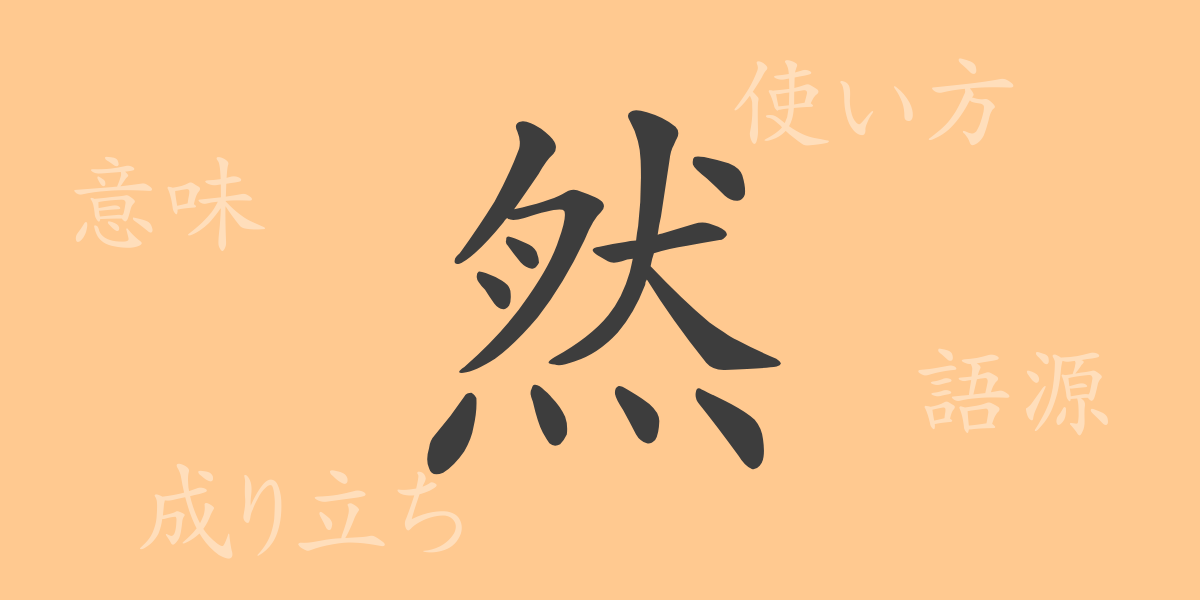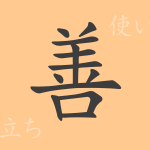Each Japanese character holds its unique history and meaning, enriching the language’s expressive power. The kanji “然” (ぜん) is frequently seen in everyday conversation, literature, and business, significantly enriching Japanese expressions. This article explores the profound world of “然,” covering its origins, meanings, uses, and the idioms and proverbs associated with it, enhancing your understanding of this commonly used Jouyou kanji.
Origins of 然
The kanji “然” originated in ancient China, evolving from pictographic characters. It combines “犬” (いぬ), which means dog, with “火” (ひ), symbolizing fire, depicting a dog near a fire. Initially representing the scene of a dog by the fire, it metaphorically came to mean ‘being so,’ ‘such a state.’ Over time, it has been adapted in various cultures and languages, becoming a significant character in Japanese.
Meaning and Usage of 然
“然” conveys meanings such as ‘such,’ ‘like that,’ describing the state or nature of things. It connects with adjectives or adjectival verbs to form suffixes like ‘-like’ or ‘seemingly,’ allowing for versatile applications in various contexts, highlighting its characteristic use in the Japanese language.
Readings, Stroke Count, and Radical of 然
“然” is deeply embedded in the written Japanese language, with its readings and structure:
- Readings: On’yomi “ゼン,” “ネン”; Kun’yomi “しか,” “しかり,” “しかし,” “さ”
- Stroke Count: 12 strokes
- Radical: 犬 (いぬへん)
Phrases, Idioms, and Proverbs Using 然
There are numerous idioms, phrases, and proverbs that include “然,” each with unique meanings and nuances:
- 自然 (しぜん): A state unaltered by human intervention, natural.
- 当然 (とうぜん): Naturally, of course, without doubt.
- 全然 (ぜんぜん): Not at all, completely, in a total sense.
- 突然 (とつぜん): Suddenly, unexpectedly.
- 然り (しかり): Indeed, that is correct.
Conclusion on 然
The single character “然” holds deep meanings and diverse usages, playing a significant role in expanding the expressiveness of the Japanese language. When encountering “然” in text, reflecting on its rich history and meanings can deepen your appreciation of the Japanese language’s complexity and beauty.

























